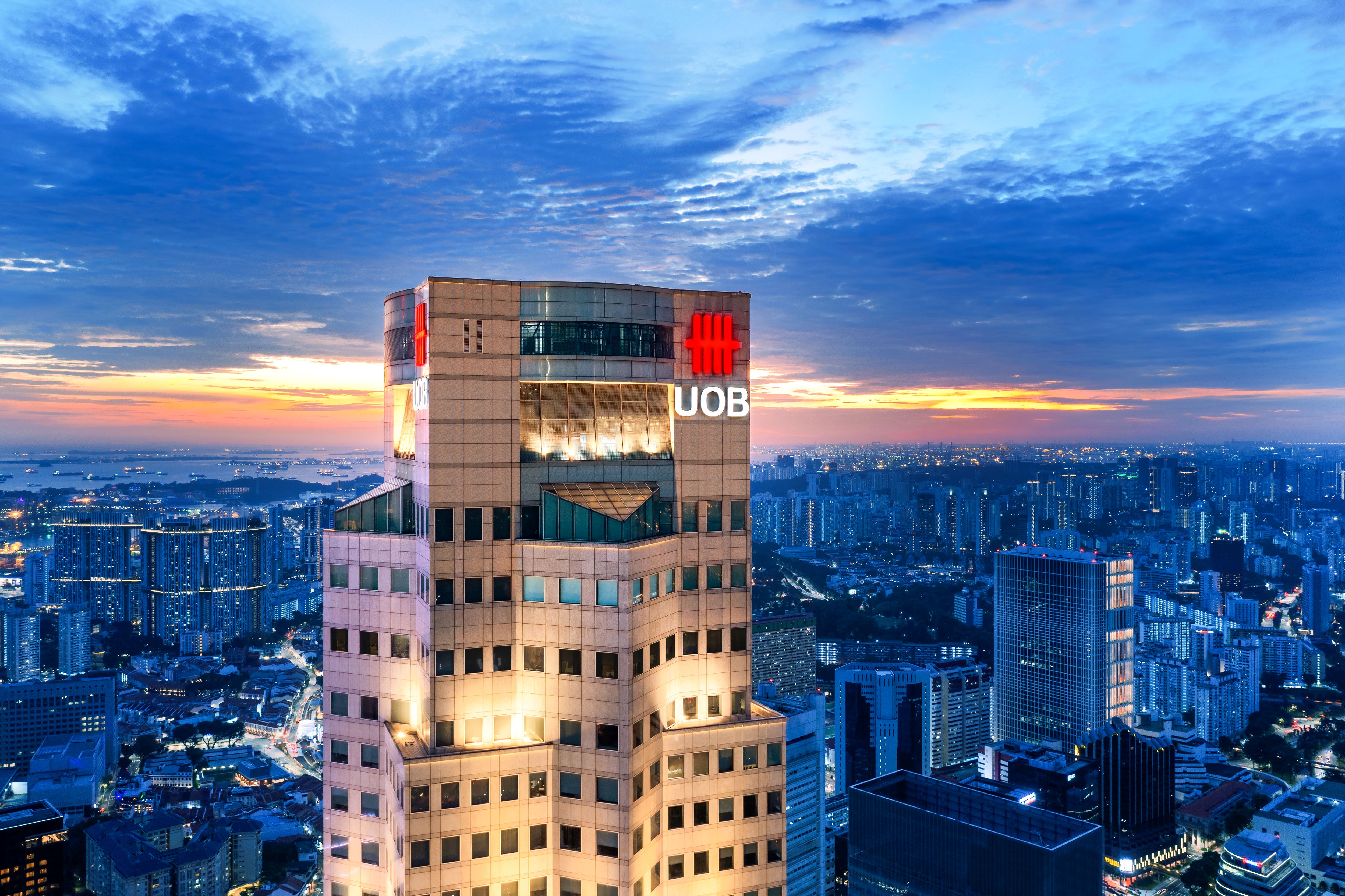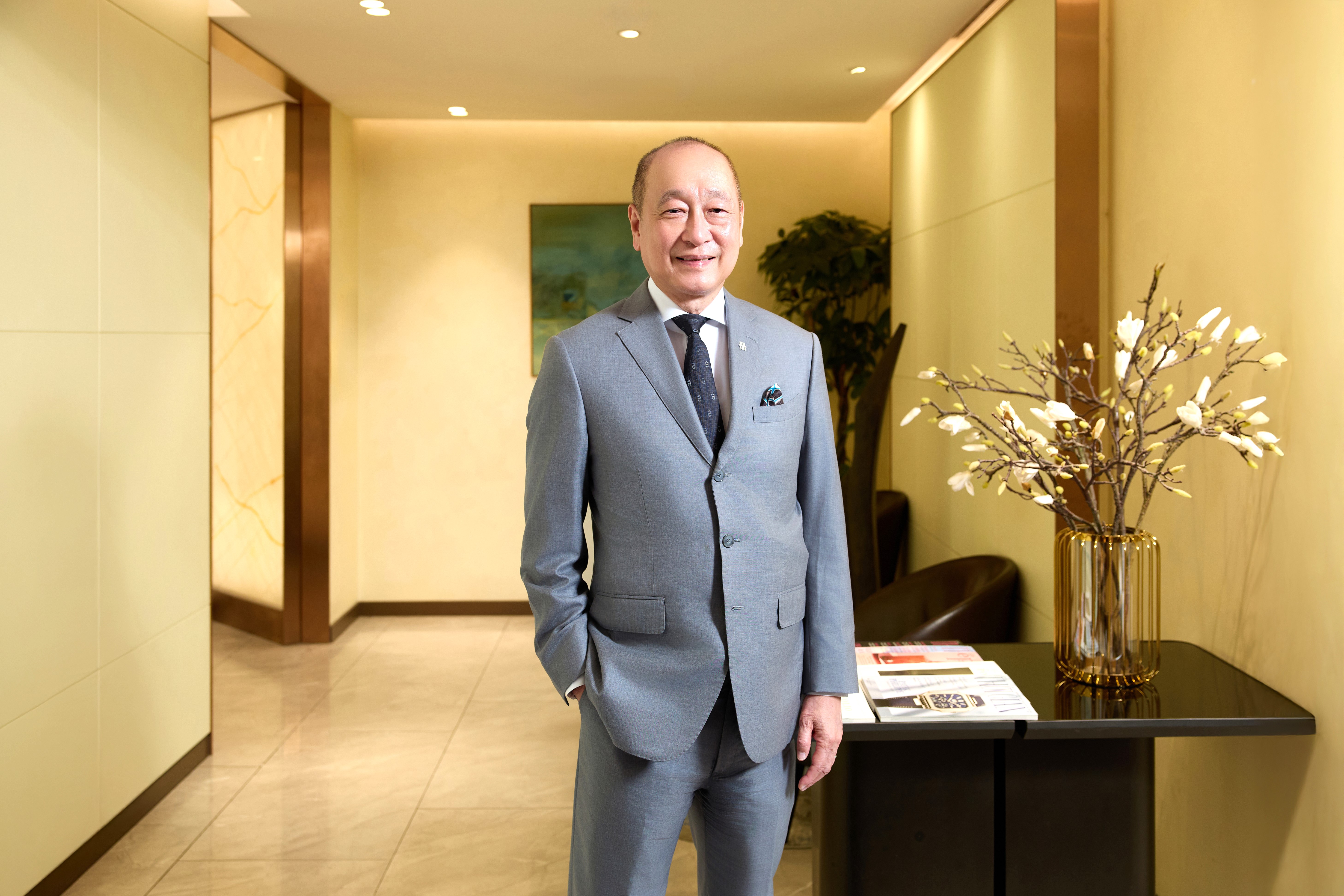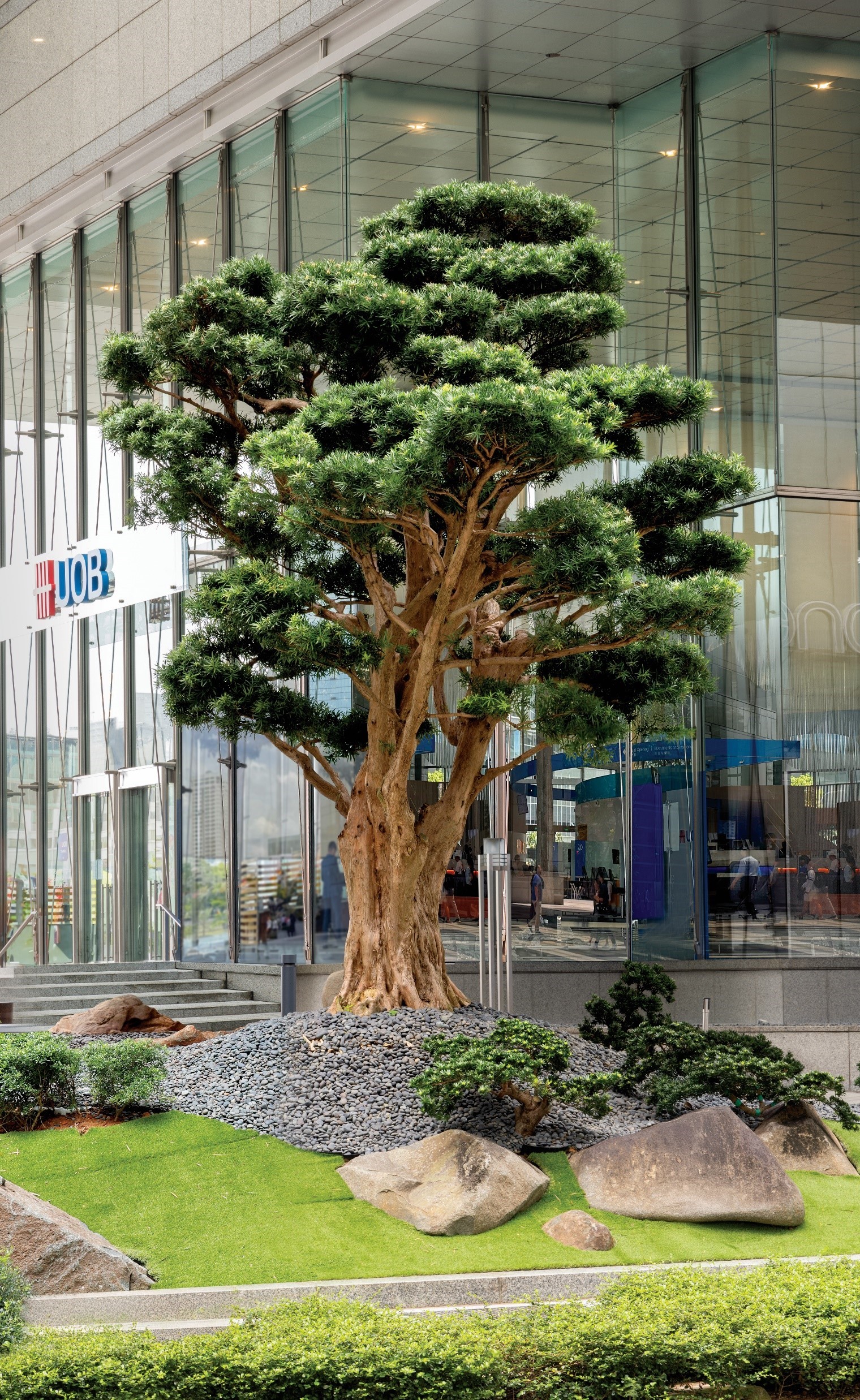
As the bank marks more than eight decades of operation and approaches its 90th anniversary, the bonsai serves not only as a visual metaphor but also as a cultural cornerstone-particularly in UOB’s expansion efforts across ASEAN.
“We don’t chase rapid expansion. We believe in taking a long-term view, rooted in strong fundamentals. That’s what enables us to grow with resilience,” Mr. Wee Ee Cheong, Deputy Chairman and CEO of United Overseas Bank (UOB), noted that the bank’s steady presence in Vietnam exemplifies this philosophy.
UOB’s journey in Vietnam began in 1993 with the opening of a representative office, followed by the establishment of a branch in Ho Chi Minh City in 1995. Since then, the bank has focused on building a strong foundation through consistent investments in digital infrastructure, sustainable finance, and talent development.
Empowering Vietnam’s digital and green transformation
UOB is deepening its commitment to Vietnam’s digital and green transformation through sustained investment in technology, innovation, and people—aligning closely with the country’s push for a digitally driven, sustainable economy. According to Mr. Wee Ee Cheong, technology is a key enabler in this transformation.
“Our unified platform, developed to span across ASEAN, enables us to deliver seamless banking services regardless of geographic location,” he said.

Now active in key markets such as Vietnam, Malaysia, and Thailand, the integrated platform ensures clients receive consistent, efficient service across the region. Designed to go beyond core banking, the platform enhances cross-border trade finance and supply chain management, streamlining operations and reducing paperwork. This has been particularly impactful for foreign investors looking to enter or expand in Vietnam.
Reflecting on recent developments, Mr. Wee shared that the COVID-19 pandemic further accelerated UOB’s digital rollout. In response to changing customer behavior, the bank fast-tracked the launch of its digital banking app called UOB TMRW (Tomorrow), which has been well-received across the region and is set to introduce in Vietnam this year.
At present, UOB continues to take the omni-channel approach to banking, combinating digital innovation with in-person service. “Digital-savvy customers, especially the younger generation, prefer to interact via apps, while older generations tend to visit branches. We have tailored our offerings to serve both groups with a flexible approach, adapting our physical presence to meet customer preferences,” he explained.
Currently, UOB operates five branches in Vietnam, though this number could evolve in line with digital adoption rates. “Ultimately, it’s about delivering the best possible experience to our customers,” he said.
Alongside digitalization, UOB is also taking measured steps toward integrating artificial intelligence (AI) into its operations. Initial applications in customer service—particularly in call centers—are helping anticipate customer needs and enhance efficiency. “AI can greatly improve efficiency, but only if the data behind it is accurate. In banking, where confidentiality is crucial, any misstep can be costly. That’s why we apply AI carefully and with robust oversight”, Mr. Wee emphasized.
He added that while broader AI applications—such as personalized product offerings—are being explored, customer data security remains paramount. “AI is a powerful tool—but without proper control, it can be dangerous. Human oversight remains essential.”
Beyond technology, Mr. Wee underlined the importance of talent development. “No matter how advanced our systems are, they’re only as good as the people operating them,” he said. “That’s why we prioritize training and development—to empower our employees to fully leverage digital tools and deliver exceptional service.”
Additionally, UOB is reinforcing its commitment to green transformation. Mr. Wee highlighted that the bank’s new headquarters in Ho Chi Minh City’s District 1 is being designed with sustainability in mind. “A focus on sustainability is beneficial for everyone, not just the bank, but for the broader community as well. While progress may take time, we all have a role to play in ensuring that we continue to move in the right direction,” he emphasized.
UOB’s talent strategy in Vietnam
UOB expands its presence across ASEAN, developing and retaining the right talent remains a cornerstone of its long-term growth strategy—particularly in rapidly growing markets like Vietnam. For Mr. Wee Ee Cheong, sustainable success is not just about hiring the right people, but also about creating an environment where they are equipped to excel.
At UOB, talent empowerment is driven by ongoing investments in training, digital tools, and leadership development. By fostering a culture rooted in innovation and continuous learning, the bank ensures its people are well-prepared to navigate the evolving demands of a digital-first economy.
However, building a stable workforce in Vietnam presents challenges, especially with a young and ambitious talent pool. Many employees, after gaining initial experience, are drawn to opportunities elsewhere that offer faster career progression or higher compensation. Recognizing this trend, UOB places a strong emphasis on long-term employee value.
The bank encourages staff to view career development not merely as a corporate benefit, but as a personal investment in their future. By cultivating an inclusive and supportive work environment, UOB aims to inspire employees to build meaningful, enduring careers—rooted in purpose, growth, and a shared vision for success.
UOB's commitment to community and legacy
UOB emphasizes the importance of adaptability, not only in business but also in its engagement with local communities. In Vietnam, the bank actively contributes through initiatives like the UOB Heartbeat program, which focuses on education and social impact. “We don’t just work in a country; we aim to be a part of it,” said Mr. Wee Ee Cheong. This approach fosters acceptance, which is vital for long-term success.
UOB’s commitment to education is a cornerstone of its broader corporate social responsibility (CSR) strategy, which is structured around three core pillars: art, education, and children. Among these, children’s education is given particular emphasis due to its long-term impact on individual lives and communities. By focusing on education, especially for underprivileged children, UOB aims to equip the next generation with the skills needed to thrive in an increasingly digital world.
A key component of this initiative is improving digital literacy. In today’s economy, the ability to navigate and utilize technology is essential, and providing access to digital tools and learning platforms can significantly level the playing field for disadvantaged youth. To mark its 90th anniversary, UOB is partnering with an education platform to support 120,000 underprivileged children across Singapore and the region. “It’s about making a lasting impact on society,” Mr. Wee affirmed.
UOB embraces a philosophy of deliberate, sustainable growth to preserve its legacy while embracing innovation. Mr. Wee likens this approach to nurturing a bonsai tree, symbolizing patience, care, and the right environment for growth. The bonsai is featured in UOB’s annual reports and in the bank’s Singapore branch and will be in new Ho Chi Minh City headquarters. “It reminds our people, especially in Vietnam, that we are here to grow together—with patience, purpose, and pride,” he added.
As UOB strengthens its presence in ASEAN, its bonsai-inspired philosophy shapes not only its financial strategy but also its role in supporting communities, nurturing talent, and contributing to sustainable development. The bank's senior management team, with decades of experience, ensures stability and continuity, maintaining a consistent vision.

With UOB’s 90th anniversary approaching, Mr. Wee identifies UOB's most significant legacy as its ability to thrive across three generations. "Many family businesses and SMEs struggle to carry on from one generation to the next, but UOB has managed to grow over three generations and continues to evolve as a leading regional bank. This longevity is a testament to the culture we've built, the adaptability we've embraced, and the institutional strength we've developed," he stated.
To ensure sustainability, UOB focuses on cultivating a strong organizational culture. “We believe in growing our own timber,” Mr. Wee explained, noting the long tenure of the bank’s senior leadership team. This continuity supports UOB’s long-term growth.
Upbeat on long-term outlook
Looking ahead to UOB’s 100th anniversary, the bank’s long-term vision centers on becoming more deeply rooted in the ASEAN region. Over the next decade, UOB aims to increase activities, strengthen engagement, and accelerate growth across all key markets. A core component of this strategy is simplifying banking processes and making them more intelligent through the integration of artificial intelligence. This will enable UOB to scale more efficiently and deliver more responsive, tailored services to its customers.
Over the next 10 years, UOB also sees significant potential in ASEAN’s demographic advantage—a young, growing population of over 600 million people. However, unlocking this potential depends on maintaining political stability and fostering stronger regional cooperation. Rather than competing within the region, UOB emphasizes the importance of a unified ASEAN front, where collaboration enhances global competitiveness. Without this collective approach, ASEAN risks missing out on critical opportunities.
By focusing on innovation, efficiency, and regional solidarity, UOB aims to contribute meaningfully to the region’s development and ensure it remains dynamic and prosperous.
In 2025, the banking industry faces key challenges and opportunities amid global economic uncertainties, particularly the impact of tariffs. While tariffs add complexity, UOB’s 90 years of experience navigating economic storms gives the bank confidence in its ability to weather future challenges.
The imposition of U.S. tariffs has significant ramifications, not only for Vietnam but for countries across the ASEAN region. Higher costs for goods going to the U.S. could shift trade routes, with Vietnam, facing particularly high tariffs, potentially redirecting trade to other ASEAN nations or Europe. Mr. Wee acknowledges that the current global economic landscape creates added pressure.
However, UOB remains optimistic about the medium- to long-term outlook. "We shouldn’t overreact to short-term challenges," Mr. Wee emphasized. Despite these uncertainties, the bank’s strategy remains focused on expanding and investing in the region, ensuring continued growth and stability in the face of global fluctuations.








 Google translate
Google translate